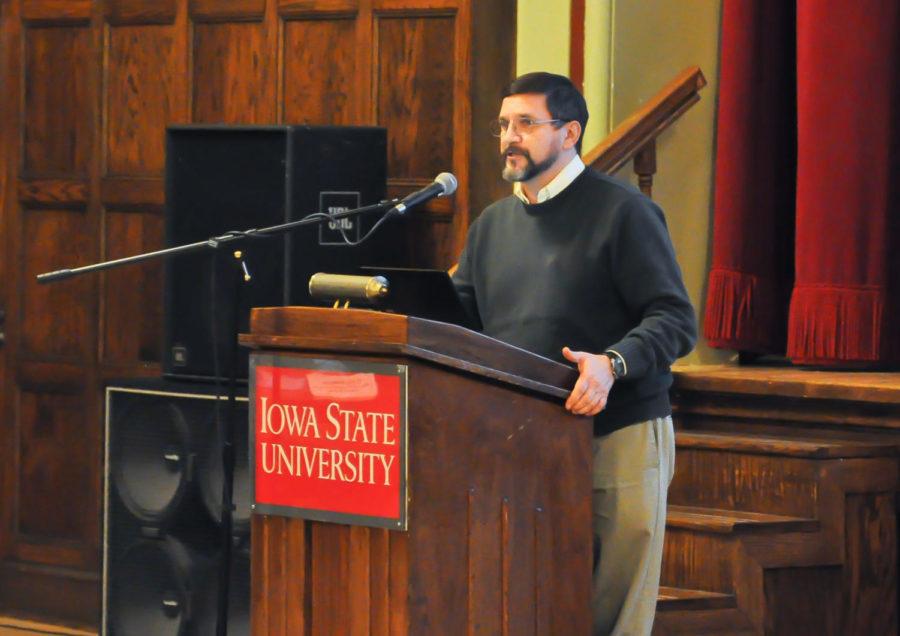- App Content
- App Content / News
- News
- News / Politics And Administration
- News / Politics And Administration / Campus
Non-tenure eligibility task force proposes new faculty ranks
Robert Wallace, associate professor of Ecology, Evolution and Organismal Biology gave the summary of new business during the faculty senate meeting on Nov. 12 at the Great Hall of the Memorial Union.
October 23, 2017
Currently, while other faculty can work to gain numerous promotions, from assistant professor to senior professor, the only opportunity nontenured eligible faculty, or NTE faculty, are given is the title of lecturer.
After five years of service they are eligible to become senior lecturer, but have no higher rank to work toward. The task force is working to implement a third rank above the lecturer ranks for those NTE faculty who do excellent work and sometimes serve beyond what is expected of them. This rank would be referred to as principle lecturer.
“We want to acknowledge those people who are really contributing to the university for an extended period of time, to allow somewhat of a better career path for them with increased opportunities and increased salary,” said Robert Wallace, associate professor of ecology, evolution and organismal biology.
The nontenured eligible task force is working to make improvements for nontenured eligible faculty. NTE faculty are hired at Iowa State to assist with teaching, advising, research or other operations on campus.
The formation of the NTE task force is a result of joint action between the Faculty Senate and the provost’s office. It was put together during the 2015-2016 academic year.
The task force is composed of representation from all of the colleges, including tenure eligible and nontenured faculty.
Wallace, who was the previous Faculty Senate president and chair of the NTE task force, wants to work toward improving the current faculty handbook.
“Part of this nontenured eligible task force was to look at how we define the different groups of nontenured eligible faculty on campus and then better articulate how they are to be reviewed, how they are to be hired and renewed,” Wallace said.
Another recommendation of the task force is to make a distinction between NTE faculty who have a terminal degree and those who do not.
Wallace said they want to create two entirely new tracks for acknowledging these people.
NTE faculty who do have their terminal degree would be able to start at the rank of teaching assistant professor. After five years of service, they would be eligible to move up to teaching associate professor or teaching professor.
The other new track would provide for people who perhaps have long-term life experience in their department, but do not have a terminal degree.
These faculty members would be eligible to be assistant professors of practice. Again, after five years of service, they would be able to earn the rank of associate professor of practice or professor of practice.
The task force is also looking to revise the current research professor track by clarifying status, and other procedures.
They want to modify the adjunct professor track too, providing more flexibility in responsibilities and improving descriptions for evaluation, review and renewal.
“President Tim Day of the [Faculty Senate] has this as one of his high priorities,” Wallace said, “in terms of getting this discussed adequately, vetted across campus and approved in some form, some time this year.”







